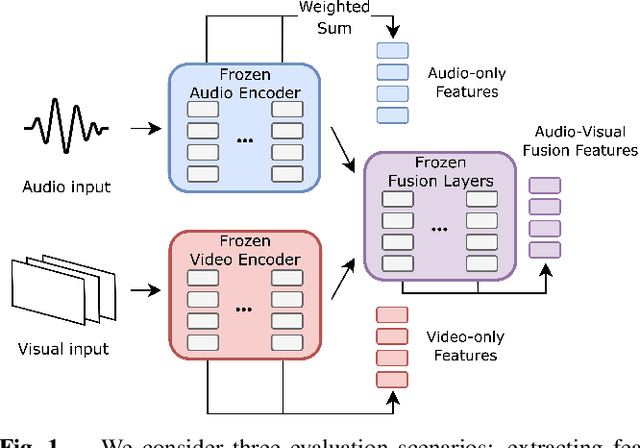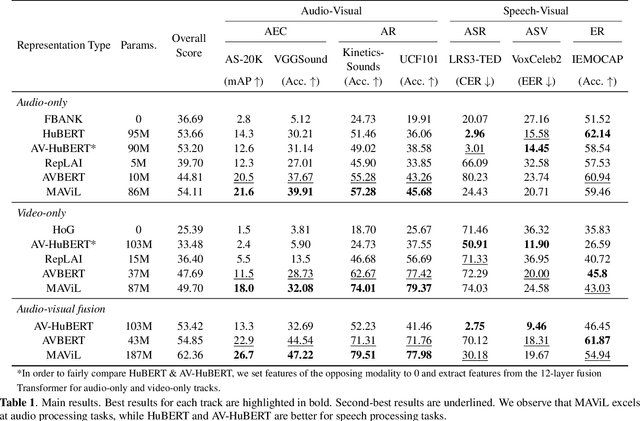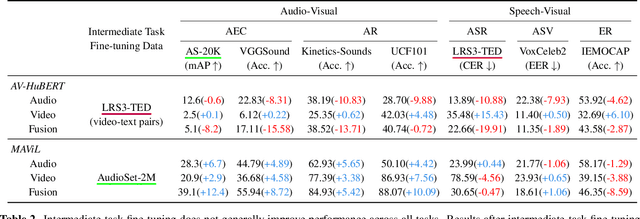Hsuan-Hao Lin
Dynamic-SUPERB Phase-2: A Collaboratively Expanding Benchmark for Measuring the Capabilities of Spoken Language Models with 180 Tasks
Nov 08, 2024



Abstract:Multimodal foundation models, such as Gemini and ChatGPT, have revolutionized human-machine interactions by seamlessly integrating various forms of data. Developing a universal spoken language model that comprehends a wide range of natural language instructions is critical for bridging communication gaps and facilitating more intuitive interactions. However, the absence of a comprehensive evaluation benchmark poses a significant challenge. We present Dynamic-SUPERB Phase-2, an open and evolving benchmark for the comprehensive evaluation of instruction-based universal speech models. Building upon the first generation, this second version incorporates 125 new tasks contributed collaboratively by the global research community, expanding the benchmark to a total of 180 tasks, making it the largest benchmark for speech and audio evaluation. While the first generation of Dynamic-SUPERB was limited to classification tasks, Dynamic-SUPERB Phase-2 broadens its evaluation capabilities by introducing a wide array of novel and diverse tasks, including regression and sequence generation, across speech, music, and environmental audio. Evaluation results indicate that none of the models performed well universally. SALMONN-13B excelled in English ASR, while WavLLM demonstrated high accuracy in emotion recognition, but current models still require further innovations to handle a broader range of tasks. We will soon open-source all task data and the evaluation pipeline.
AV-SUPERB: A Multi-Task Evaluation Benchmark for Audio-Visual Representation Models
Sep 19, 2023


Abstract:Audio-visual representation learning aims to develop systems with human-like perception by utilizing correlation between auditory and visual information. However, current models often focus on a limited set of tasks, and generalization abilities of learned representations are unclear. To this end, we propose the AV-SUPERB benchmark that enables general-purpose evaluation of unimodal audio/visual and bimodal fusion representations on 7 datasets covering 5 audio-visual tasks in speech and audio processing. We evaluate 5 recent self-supervised models and show that none of these models generalize to all tasks, emphasizing the need for future study on improving universal model performance. In addition, we show that representations may be improved with intermediate-task fine-tuning and audio event classification with AudioSet serves as a strong intermediate task. We release our benchmark with evaluation code and a model submission platform to encourage further research in audio-visual learning.
 Add to Chrome
Add to Chrome Add to Firefox
Add to Firefox Add to Edge
Add to Edge